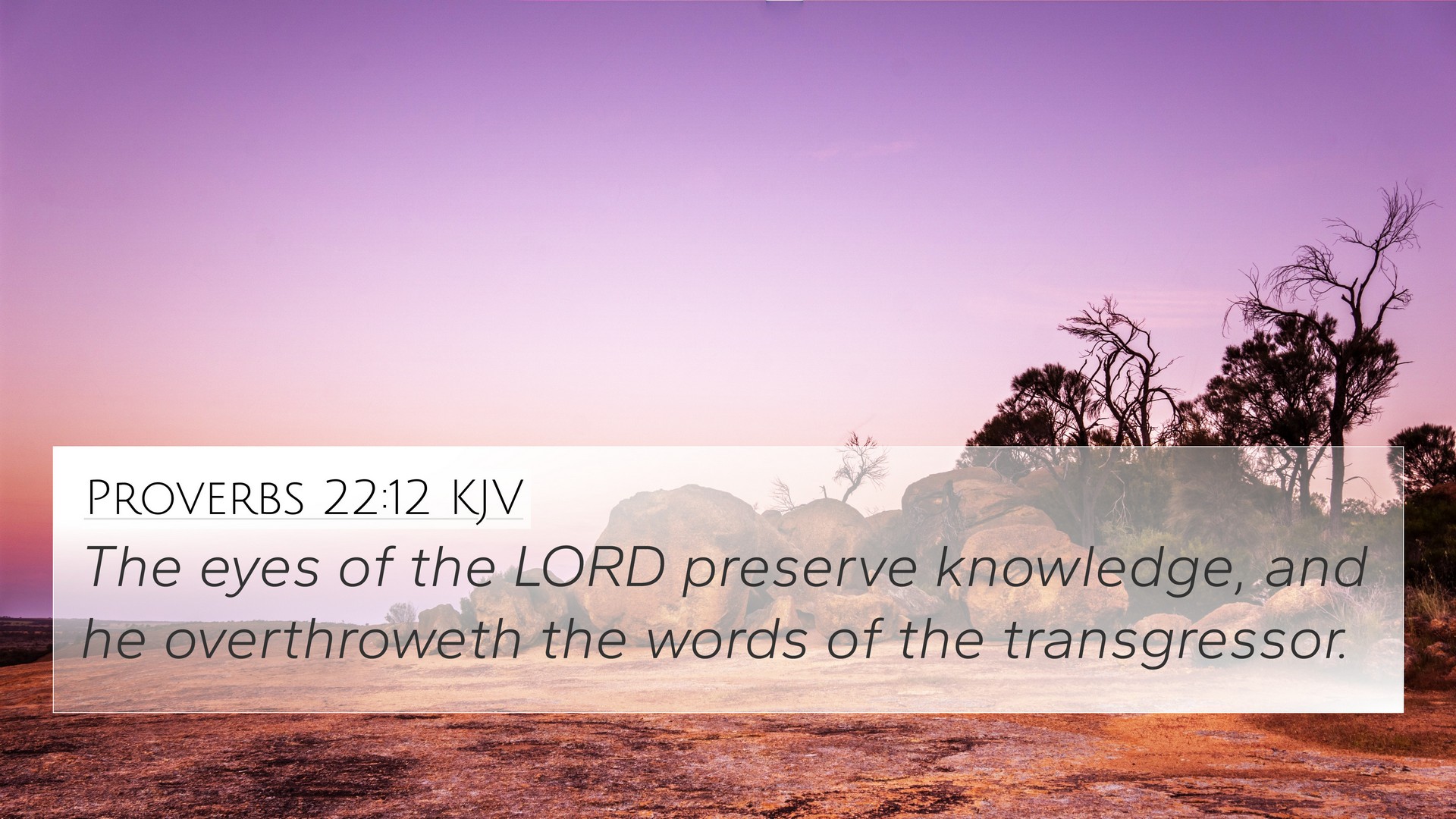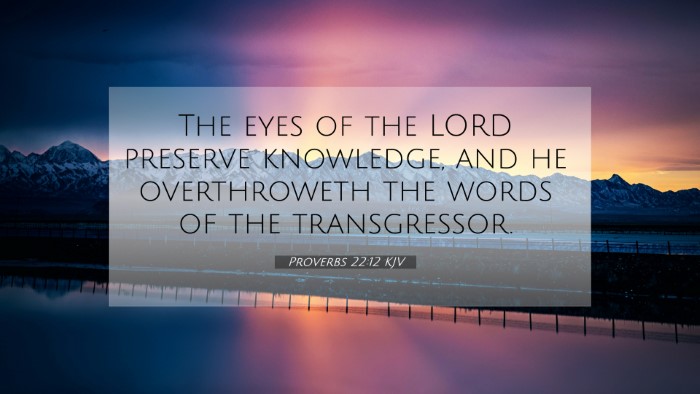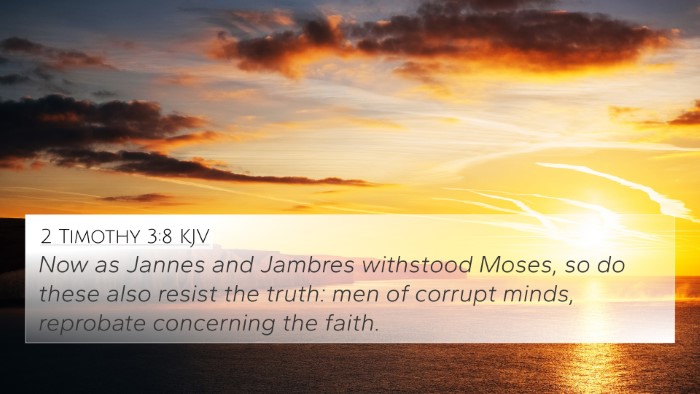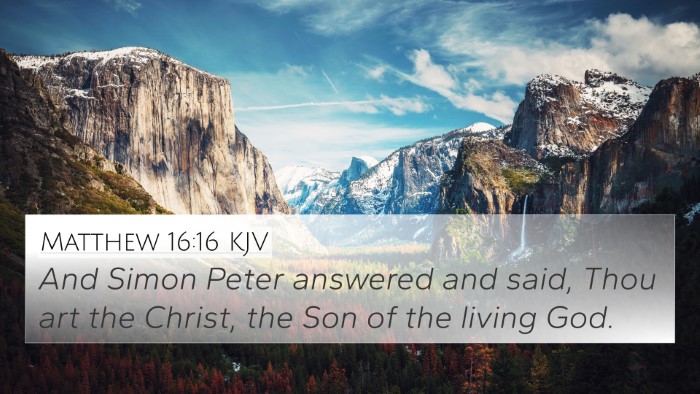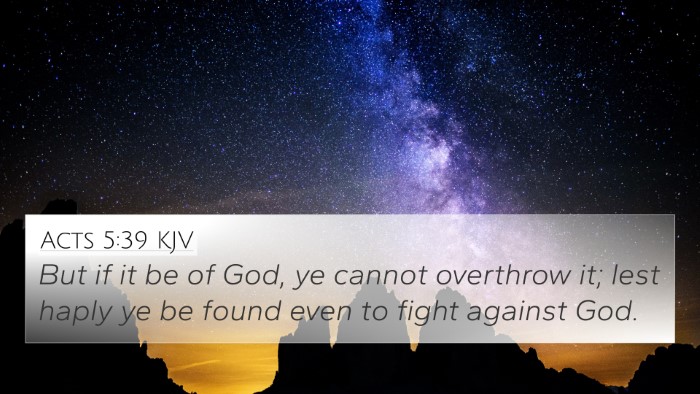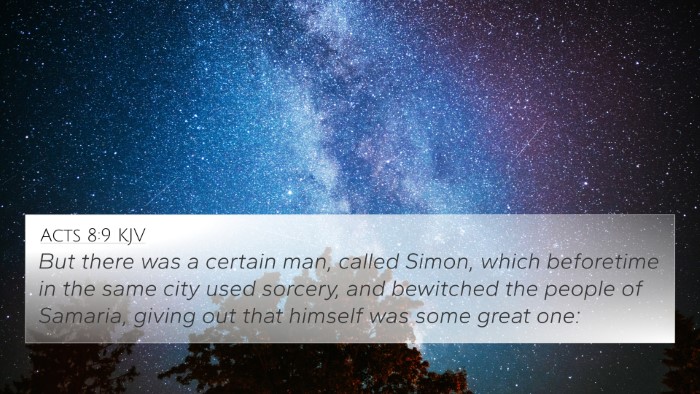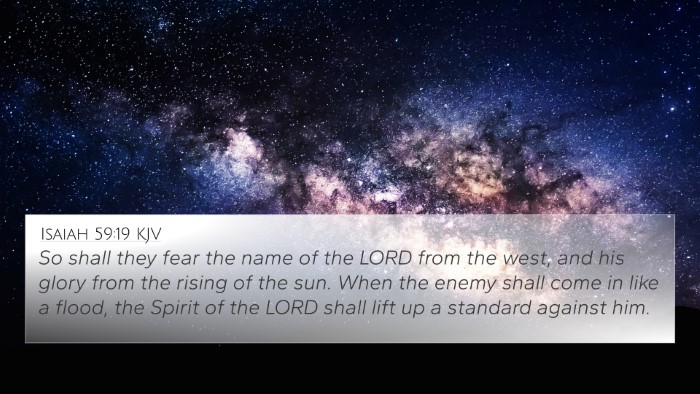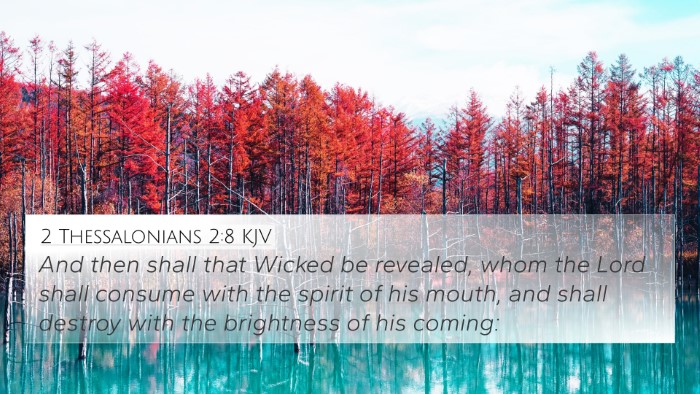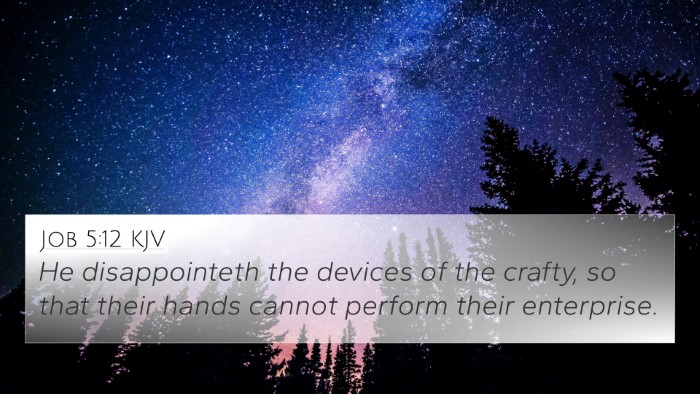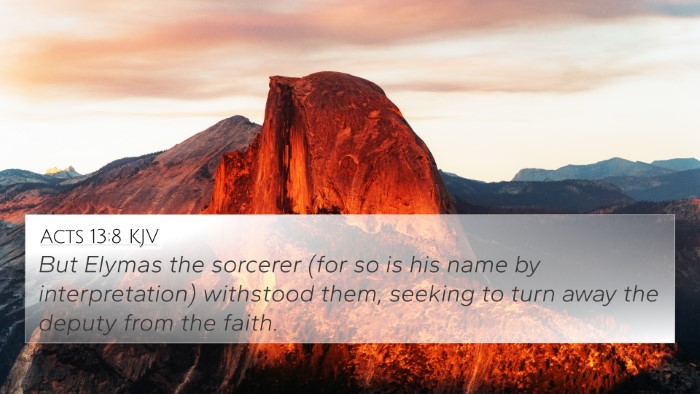Understanding Proverbs 22:12
Proverbs 22:12: "The eyes of the Lord preserve knowledge, but he overthrows the words of the faithless."
Meaning and Interpretation
This verse speaks to the assurance that God actively safeguards knowledge and wisdom. The first part emphasizes the divine oversight in protecting true understanding, while the latter part contrasts this by indicating that the words spoken by the deceitful or faithless will ultimately be brought to ruin.
- Divine Oversight: The “eyes of the Lord” signify God’s omniscience and His intimate involvement in the lives of humanity. Here, knowledge is not just intellectual but relates to understanding and truth.
- Value of Knowledge: Knowledge is precious in the eyes of God, and it stands as a foundation for faith and righteous living.
- Faithlessness: The phrase “words of the faithless” illustrates the futility of those who detach themselves from God’s truth. Their words are transient and lack substance.
Commentary Insights
Commentators such as Matthew Henry, Adam Clarke, and Albert Barnes have highlighted several key aspects of this verse:
Matthew Henry's Commentary
Henry emphasizes the importance of knowledge, recognizing that it is both preserved and protected by God. He draws attention to how the faithless neglect wisdom, leading to their downfall.
Albert Barnes' Commentary
Barnes notes the duality of the passage, remarking that while God upholds knowledge, He is also opposed to those who speak deceptive or faithless words. He illustrates that the knowledge God preserves is rooted in His truth.
Adam Clarke's Commentary
Clarke elaborates on the ‘eyes of the Lord’ as symbols of His providential care, emphasizing that God not only sees but also acts upon the knowledge that aligns with His divine purpose. He connects this to the idea that the wicked will be ultimately put to shame.
Cross-Referencing Biblical Texts
This verse connects significantly with several other Biblical passages. Here are some notable cross-references:
- Psalm 139:2: "You know when I sit and when I rise; you perceive my thoughts from afar." – This highlights God's omniscience, resonating with His preservation of knowledge.
- Proverbs 2:6: "For the Lord gives wisdom; from his mouth come knowledge and understanding." – Similar themes of God as the source of knowledge.
- Matthew 12:36: "But I tell you that everyone will have to give account on the day of judgment for every empty word they have spoken." – This speaks to the consequences of faithless words.
- Proverbs 10:14: "Wise men store up knowledge, but the mouth of a fool invites ruin." – Reinforces the idea of preserving wisdom versus the reckless speech of the faithless.
- Isaiah 47:10: "You have trusted in your wickedness and have said, ‘No one sees me.'" – This contrasts with God’s omniscient oversight.
- Romans 1:22: "Although they claimed to be wise, they became fools." – Illustrates the downfall of those who forsake true knowledge.
- James 1:5: "If any of you lacks wisdom, let him ask of God, who gives generously to all without finding fault." – This implies God's willingness to provide knowledge to the faithful.
Connections Between Bible Verses
The thematic connections between these verses create a rich understanding of the importance of wisdom and divine oversight in the believer's life. When conducting a comparative Bible verse analysis, it’s essential to see how knowledge is framed within the biblical narrative:
- Thematic Bible Verse Connections: Proverbs often speak to wisdom and the consequences of faithfulness versus faithlessness.
- Bible Verse Parallels: This verse can be linked through its themes of the faithfulness of God to other wisdom literature in the Bible.
- Inter-Biblical Dialogue: The verses demonstrate a continuity of God's character revealing through both the Old and New Testaments.
Tools for Bible Cross-Referencing
Utilizing tools such as a Bible concordance or a cross-reference Bible study guide can greatly enhance one’s understanding of related scriptures. Here are some methods for efficient cross-referencing:
- How to Use Bible Cross-References: Identify key themes and phrases within passages.
- Bible Reference Resources: Seek out comprehensive resources that provide detailed connections among verses.
- Bible Chain References: Following a chain can help build a theological framework linking multiple verses together.
- Cross-Referencing Bible Study Methods: Activities such as comparing similar passages across the Gospels or identifying connections between the Prophets and Apostolic teachings can deepen understanding.
Conclusion
The teachings derived from Proverbs 22:12 encourage believers to value knowledge as God does, recognizing the importance of faithfulness in speech and thought. As we engage with scriptures, the process of cross-referencing allows us to explore the interconnectedness of God’s message throughout the Bible, leading to a richer understanding of His word.
